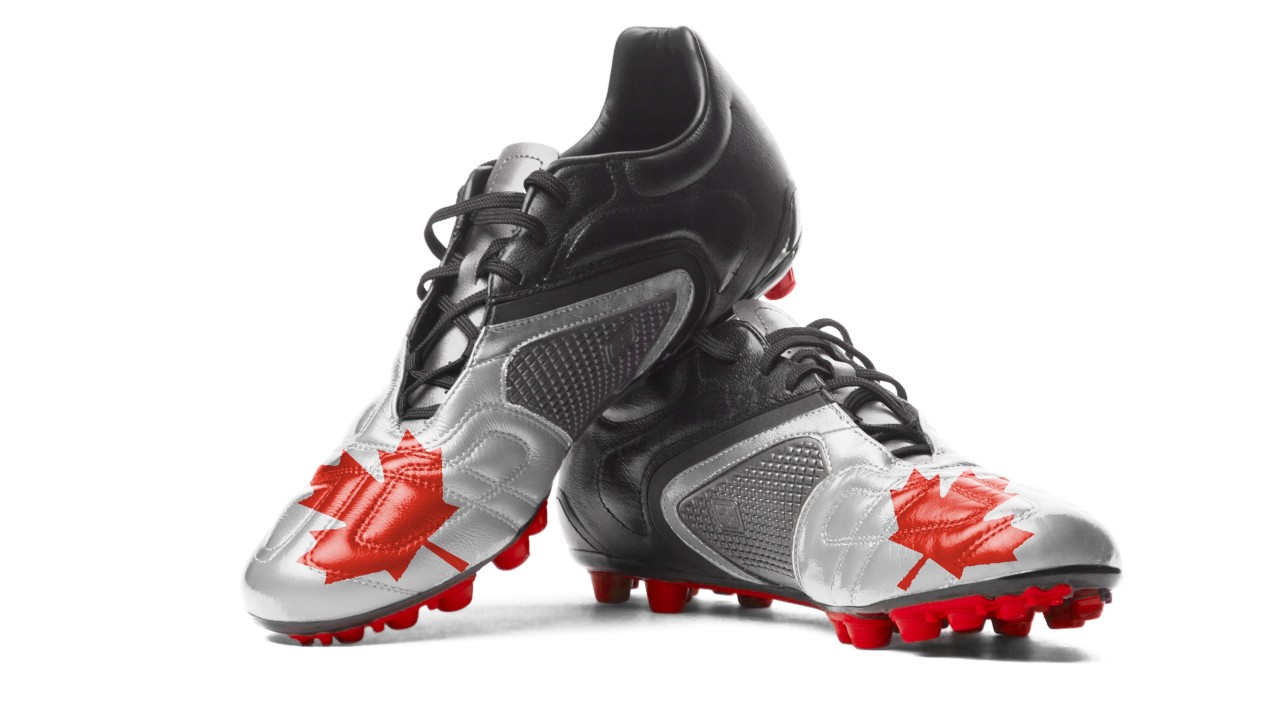Five Ways To Empower Your Amateur Soccer Technical Director


If you're on the Board of Directors of a youth soccer club, you probably have a Technical Director, You know, that person in a tracksuit who you pay to run the 'soccer side' of your club - manage the coaches, oversee the coaching, develop the players. If they're not called a Technical Director, they're a Performance Director or a Head Coach or something like that. You know who they are.
Many Technical Directors are very effective. But some are not. And even more will tell you they could be better if their Boards would just let them be. What do I mean? Simple. Most amateur soccer Boards of Directors mean well and want their Technical Director to succeed. But sadly some are more of a hindrance than a help and would be better served just getting out their Technical Director's way than managing them the way they do.
No, this doesn't mean completely washing your hands of them and giving them the keys to the castle. You have a responsibility to manage them - and you know that! But how do you manage your Technical Director without hurting their ability to be effective? Here are five key things to watch out for if you want the best from your Technical Director.

#1: Stop Telling Your Technical Director To Always Be On Field
So many Boards I speak to insist that their Technical Director belongs exclusively on the soccer field, not in the office behind a desk. In saying this, they are showing they do not understand their Technical Director's role.
Sure, some on-field work is necessary. But this should not be routine coaching of players, as per a regular coach. If you force your Technical Director to 'just coach', you're simply not getting full value from them.
A Technical Director is a coach leader and a manager, with office-based management responsibilities. Their role is to strategically manage your overall technical effort. This means the development of all of your players, and by extension, all of your coaches. Some Technical Directors have the development of referees under their wing too. How can they do this from a field with a ball under their foot? Whether we like it or not, a significant part of being a Technical Director involves planning programs, interviewing, recruiting and managing coaches, planning budgets and reporting to higher authority. It non-negotiably comes with the title of Director.
Embrace this reality! And rather than forcing your Technical Director out onto the field against their better judgement, help them understand and master the office-based component of their job. It is the side of their job they will more than likely have least experience or expertise in and will need your support in.
And when your Technical Director is out on field, make sure they are doing so performing technical management work. See them out there on that field. Are they working with their coaches, developing and implementing your club's training curriculum? If they are working with kids, is it to demo to coaches or parents? Are they interacting properly with parents in the field? This is effective time out on the field. Just coaching a team is not. If you feel it is, change their job title to 'Coach'.
#2: Understand 'Being Visible' Doesn't Mean 'Being Effective'
Technical Directors often say to me that their Boards regularly tell them to be 'more visible' to club members. It does nothing but confuse them. What does it mean? It's their job to lead the technical mandate of your club. Why are they being instructed to 'be visible'?
Your request is purely political, and they know it. Does it really make sense for your Technical Director to just stand around on the sidelines of your soccer fields, dressed in bright clothes so they can 'be visible?' In asking them to do this, you are paradoxically making them ineffective. You're also overstepping your mark and moving from asking them to deliver to technical outcomes, to telling them what to do. Literally.
Ask yourself, why have you hired a Technical Director? Is it to genuinely run the your club's technical operations, or parade them in front of your members like a prize pony? For sure, ensure your Technical Director is taking a leadership role in promoting your technical strategy and program initiatives to your members. Make them the face of your club. But let them control their level of public exposure and accessibility. You're hurting their ability to perform if you don't let them spend the time they need in their office with their coaches, staff or handling the other management responsibilities they should have like technical budgeting, program planning and reporting.
Instead, draw up clear accountabilities for your Technical Director and hold them to account. Give them the professional respect to manage their own time and decide when and how to engage with your club's players, parents, coaches and volunteers. Judge them by the quality of the meal, not how they are cooking it!
#3: Arm Your Technical Director With Administrative Support
Many smaller amateur soccer clubs rush to hire a Technical Director without having any clerical or administrative support to help them. The result? A dude in a tracksuit desperately struggling how to work an Excel spreadsheet or asking around who to call to permit a soccer field.
Technical leaders are the first to acknowledge that administration is not them natural forte, and rarely an area they have training or significant experience. But if you hire them with no administrative support, expect them to get consumed with paper shuffling as there will simply be no-one else to do it.
Of course, your Technical Director will have management-related administrative work that will need their attention! But this should be technical budget planning and technical management reporting, not buying cones and balls at your local soccer supplies store.
Data I've seen shows clearly that Technical Directors with basic administrative support are far more effective than those who don't. So if you're not ready to hire some clerical manpower, acknowledge that you probably aren't ready to hire a Technical Director either. You'll be wasting your money and your Technical Director's time if you do.
Build your capacity to make your Technical Director effective when you do eventually hire them. Maybe start with a Head Coach or Coach Development Manager and get your club administrative shop set up first. Then progress to a Technical Director who can freely focus on the technical responsibilities they are hired to do and have the skills to excel in.
#4: Kill Your Technical Committee!
Yeah, I said it! If you have a Technical Committee on your Board and also employ a Technical Director, get rid of your Committee before you get yourself into real trouble.
Why? Technical Committees are fine if you have no Technical Director. But as soon as you professionalize that role with a Technical Director, the Committee will do nothing more than fundamentally undermine or interfere with your Technical Director's authority and ability to lead. Don't believe me? Go have an honest discussion with your Technical Director about it and see what they say.
I know, I know. You love your Technical Committee. Secretly, it's one of the reasons many of your Directors choose to join your Board in the first place, right? (I'm taking that silence as a 'yes'.) Many people on soccer club Boards of Directors feel the Board should be intrinsically part of technical decision-making and see the Technical Committee as the way to insert themselves. They're wrong! Once a Technical Director is hired, the Board should manage the technical mandate of the club through them. A Technical Committee is obsolete.
And it doesn't work anyway. People who come onto Technical Committees are rarely as technically qualified as their Technical Director and can come with political agendas ('I want to appoint that coach to my son's team'). Their existence only frustrates your Technical Director, and other coaches and members too. Inevitably, anger and resentment extends to the people on the Committee and it all ends in end in tears with angered resignations and bad feeling all round.
So kill your Technical Committee! You simply don't need it if you have faith in your Technical Director. Bring your technical demands, queries and concerns directly to this person, who should be more than capable of stepping up. It will be better for all in helping keep your Technical Director accountable and Board members firmly in a position of oversight.
#5: Make Your Technical Director Plan And Report Properly!
Remember, your Technical Director is a management position, not a coaching position. No, they don't wear a suit. But make no mistake, they are an integral part of your management team. And as your soccer club's Board of Directors, you should be requiring management outputs from them. At a minimum, this should involve basic planning and reporting functions to you, either directly or through your Executive Director.
Most Technical Directors aren't too keen on either planning or reporting. But this doesn't mean they shouldn't do it, nor you be expected to give them a hall pass on it. Without it, you don't have a Technical Director. You just have a very well-paid coach. So insist on it!
Sometimes your Technical Director will privately not know how to plan or report, but be reluctant to disclose this to you. If this is the case, don't punish them for it! Very few coach leaders have planning and reporting expertise, as they are rarely asked to engage in it. Find and support training and development opportunities for your Technical Director to learn how, as you would with any other employee's development. Give them the tools and training! But don't be tempted to move these important responsibilities off their desk entirely - they are important and the essence of technical leadership!
Demand a good Technical Plan that is high level, strategic, and tied clearly to technical goals into your club's strategic plan (you have one of those, right?). What is your envisaged player pathway? What are the programs and initiatives your Technical Director will develop to turn that pathway into action? How is training curriculum designed, coordinated and translated into session plans for your coaches to deliver? How are you evaluating players, and when? How are your coaches being developed and progressed to higher opportunities? Your Technical Director needs to formulate all of this into a Technical Plan that can become your 'Bible' through which to manage their performance.
Ask for consistent but simple, clear technical management reports. How are the technical programs outlined in the Technical Plan progressing? What is the state of play with your coach development program? How is technical expenditure progressing to budget? These are basically oversight requirements you must ask if you're doing your job as a Board of Directors. So demand it of your Technical Director. Make them the management agents they are supposed to be!
-----------------------------------------------------------------------
Technical oversight in amateur soccer is one of the many challenges amateur soccer executive leaders will be debating at ExecuSoccer, Canada's first seminar series specifically geared to Executive Directors, General Managers, Business Managers and Presidents of amateur soccer clubs. Four one-day seminars will tackle four key themes - Governance, Planning & Finance; Marketing, Communications & Revenue; Technical Oversight & Evaluation; Staff & Volunteer Leadership.
Subscribe to Capitis Learning
Subscribe today to keep up to date!







